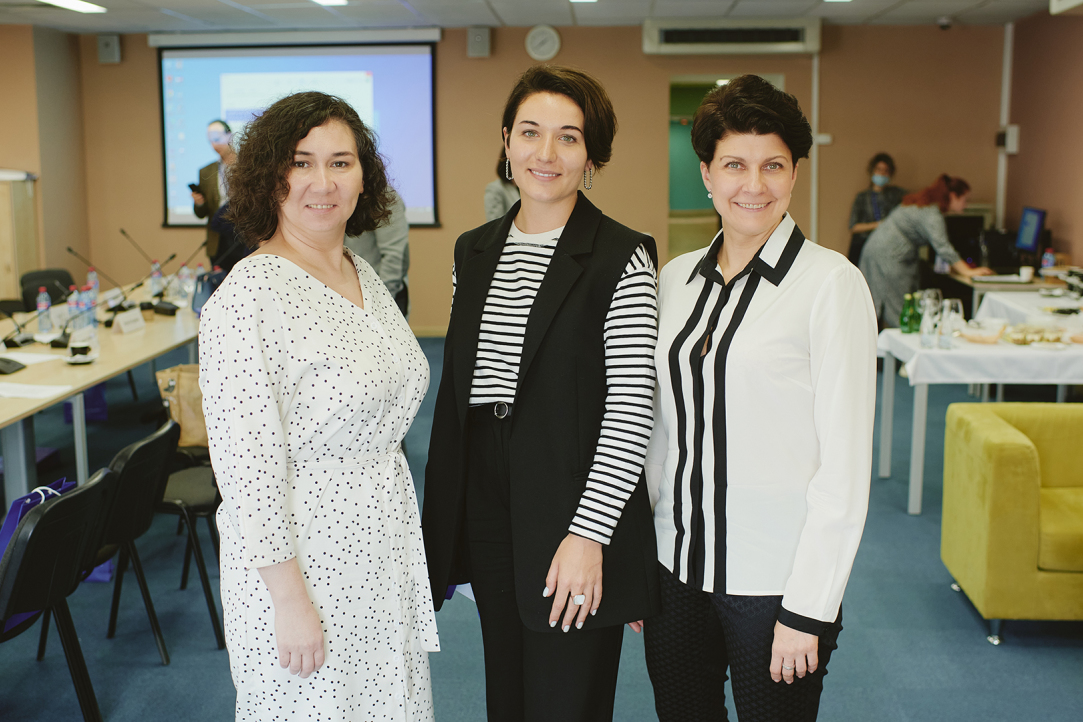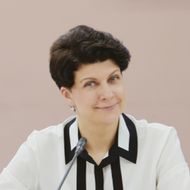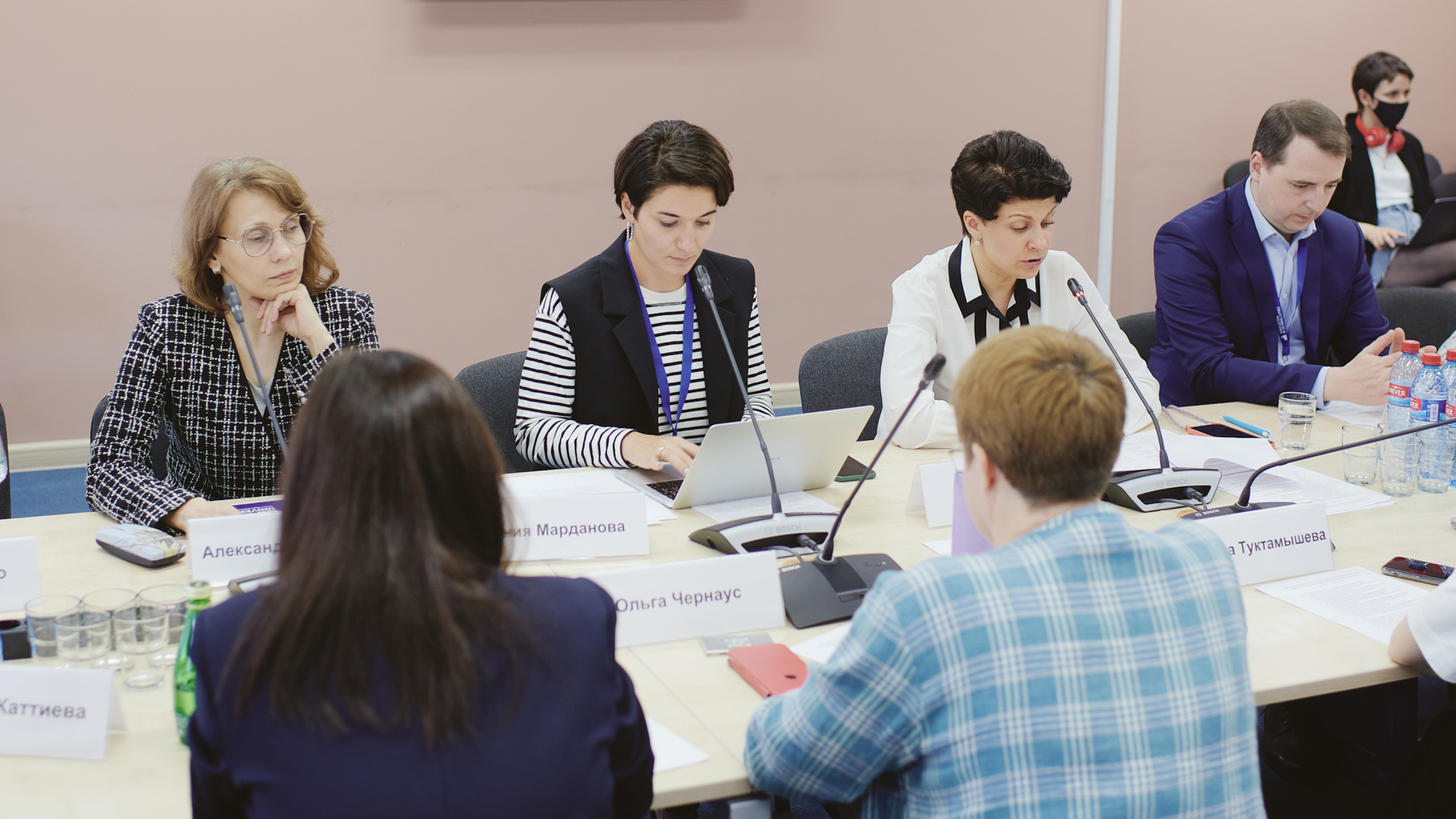Career Development Centre Should Be at the Vanguard of a Successful University

On May 20, Valeria Kasamara, HSE Vice Rector, took part in a round table on the role of career development centres at Russian universities and students’ career trajectories. This event was part of the international conference on Education and World Cities that HSE University held in Saint Petersburg from May 19—21. The round table was attended by government officials from Saint Petersburg, employees of career development centres at leading Russian universities, and representatives of different industries.
The 2021 May conference focused on the third mission of universities. In her welcome speech, Valeria Kasamara called the activity of the career development centres the embodiment of this third mission.
The discussion began with HSE Vice Rector outlining challenges that students at Russian universities are facing during the coronavirus pandemic: 40% income reduction and higher unemployment. Given these factors, Valeria Kasamara emphasized that career development centres should use other approaches when working with universities. ‘Currently, 15% of students are dissatisfied with the performance of career centres at their alma maters’ said Kasamara.
The career development centres of Russian universities should teach students basic employment skills —how to write CVs, how to look for a job, and how to promote themselves on the labour market. Kasamara also highlighted the need for further training for the career centre employees.

Valeria Kasamara, Vice Rector
‘The university can be called successful if its career development centre is at the vanguard, helping students transition seamlessly into the labour market. This university division forms an ecosystem that differentiates a good university from a bad one—the university where students would like to continue their studies and which serves as a source of highly qualified employees.’
The career centres of Saint Petersburg universities shared their expertise in working with students. Maria Ososkova, Director of ITMO Career Centre, spoke about the changes made by the ITMO University to its Career Centre. The Centre encourages students to develop a conscious approach to their future career starting in the first year of their bachelor’s programme. A new course in career development was launched as part of the student curriculum. University-wide subjects such as digital and entrepreneurial culture, logical reasoning, and creative technologies are essential components of a future bachelors’ curriculum. Moreover, courses on soft skills include presentation skills, self-efficiency and time management, emotional intelligence, and research ethics. Elizaveta Troyanova from the Career Development Centre of the Graduate School of Management (Saint Petersburg University) said that the key goal of the division is to train future leaders of industry. The Centre’s employees support students and graduates at every step of their career development. The Centre also cooperates with its corporate partners in developing joint projects and establishing laboratories to help students acquire the most relevant knowledge and skills, working hand in hand with leading industrial experts. A notable example is 5GDreamLab—a digital laboratory set up jointly with MegaFon PJSC.
Experts note that students may find it difficult to build their career because they do not realize the purpose of their studies and their own interests. Parents often push their children to embark on a specific career path. HSE Vice Rector Valeria Kasamara says that ‘Parents put pressure of their children to choose an area of studies. They often suggest that their children pursue a career that will make the parent comfortable. So many students quit universities after the first year of studies because they feel dissatisfied with their choice.’

Russian companies spoke about the challenges they face when interacting with students and university career development centres. Tatyana Rzaeva, KPMG senior human resource expert, says that traditional career event formats are losing their relevance for students. ‘Standard workshops, job fairs and case competitions are all history now, and we need to understand now what will be relevant tomorrow.’
Ksenia Mardanova, Head of Career Management and Interaction with Graduates, shared her experience in creating digital projects devoted to career paths. She spoke about the Norm Stajer podcast on which HSE graduates share their experience of seeking jobs and working for major Russian companies. Ms Mardanova also suggested that career centres develop social networks on popular virtual venues, saying that due to the new online format, human resource management events have doubled in popularity.
At the end of the discussion, representatives of education and business sectors agreed that the labour market had ‘overheated’ students due to the lack of human resources. Recruiters are headhunting competent candidates, while potential employees have the luxury of making choices. ‘Universities must learn how to teach students to work. Many students know how to study but don’t understand how to work. This would change the situation on the labour market for the better,’ said Professor Kasamara.
Ksenia Mardanova
Director of HSE Centre for Career Development

